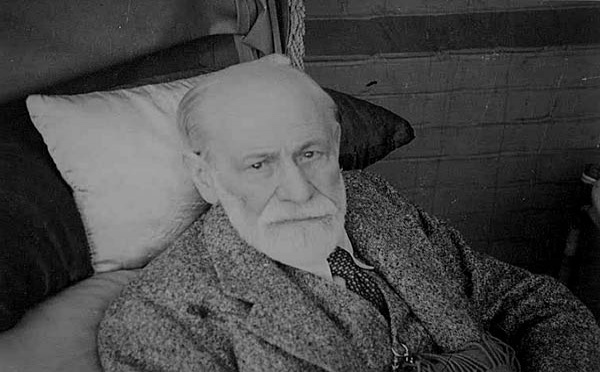Conclusions on public health strategies to combat neurodegenerative diseases associated with ageing and in particular Alzheimer's disease
Council meeting
Brussels, 16 December 2008
The Council adopted the following conclusions:
"THE COUNCIL OF THE EUROPEAN UNION:
1. RECALLS the challenge and the opportunity presented to the European Union (EU) by population ageing. EUROSTAT predicts a doubling of the EU population aged 65 and over between 1995 and 2050 (30 % of the population of the EU, i.e. 135 millions people, will be 65 or over in 2050);
2. RECALLS that the contribution of improvements in medical care, among other factors, will extend the lives of citizens but that increased longevity should be accompanied by actions to maintain their quality of life through healthy ageing;
3. RECALLS that the prevalence of neurodegenerative diseases associated with ageing and in particular Alzheimer's disease (hereinafter referred to as "diseases") rises with age and doubles every five years after the age of 651. The particularly rapid improvement in life expectancy forecast in those EU countries where this has been relatively low makes these diseases a Europe wide concern. It underlines the importance of cooperation between Member States on the consideration of preventive actions, health promotion and cognitive stimulation, throughout the life cycle, to meet this challenge;
4. EMPHASISES the complexity of patient care, which requires a multidisciplinary, multiprofessional and multisectoral approach integrating the health and social fields, still too often regarded as separate;
5. UNDERLINES the importance of ensuring that patients, whose ability to care for themselves is progressively changing, can grow old with dignity, addressing the ethical problems caused by these diseases and observing the principles of the EU Charter of Fundamental Rights and, in particular, Chapter I concerning dignity;
6. UNDERLINES that the primary strategic objective set out in the Commission's White Paper "Together for Health: a Strategic Approach for the EU 2008-2013" is to promote good health throughout a person's life cycle in an ageing Europe, among others by improved knowledge of these diseases;
7. UNDERLINES the adoption, on 26 September 2008, of the Council conclusions concerning a common commitment by the Member States to combat neurodegenerative diseases, particularly Alzheimer's, promoting a significant improvement in cooperation and the coordination of research efforts within the EU. Initiatives aimed at research to combat Alzheimer's and related diseases often remain too fragmented in Europe;
8. RECALLS the commitment of the European Parliament to support European action to combat Alzheimer's disease and related syndromes2;
9. UNDERLINES the commitment of civil society at European and national level to make Alzheimer's disease a public health priority at EU level, and WELCOMES the work already carried out by associations that defend and support patients and their carers, through:
− their activities aimed at disseminating information and supporting patients, their families and their carers;
− the establishment of services to better meet the needs of patients and their carers and promote proximity and social inclusion, secure and friendly environments and protect patients from abandonment, injuries and violence;
− their participation in the development and implementation of measures to combat these diseases;
1 Ferri CP, Prince M, Brayne C et al: Global prevalence of dementia: a Delphi consensus study. Lancet 2005, 366:2012-2017
2 Resolution of 17 April 1996 on Alzheimer's disease and the prevention of disorders of the cognitive functions in the elderly and the Resolution of 11 March 1998 on Alzheimer's disease.
10. RECOGNISES the need to have more accurate and reliable epidemiological data on these diseases and, using the appropriate methodologies, to improve the capabilities for using these data on a European and national scale to foresee the future trends of these diseases and their impact on health and social systems. That work should help in planning the needs for care and support for patients and their carers and anticipating the impact on the financial sustainability of health and social systems;
11. TAKES NOTE of the work currently done in the framework of the European Community public health programme on dementias, e.g. through the EUROCODE project whose conclusions are expected to provide insights into disparities in the way health and social systems in the EU tackle these diseases;
12. WELCOMES the conference entitled "Europe against Alzheimer's disease", held in Paris on 30 and 31 October 2008, which gathered the stakeholders involved in the care of patients and in the support of carers and invited European political decision makers to fight together against these diseases, through a multidisciplinary approach, integrating scientific, health and social dimensions;
13. UNDERLINES the importance of legal protection and the rights of patients affected by these diseases;
14. WELCOMES the work carried out on long-term care under the aegis of the Social Protection Committee and CONSIDERS that the question of how to coordinate social and health services calls for detailed examination;
15. CALLS ON the Member States and the Commission to:
− recognise that these diseases constitute a priority for action in the context of the ageing of the EU's population;
− take account of the potential consequences of the increase of these diseases for the financial sustainability of health and social protection systems;
− reflect together on existing quality criteria for the care of patients and the support of carers and to consider ways of developing them further, in order to better assess the effectiveness of the various initiatives in this area, while fully respecting the responsibilities of the Member States for the organisation and delivery of health and social services and medical care;
16. CALLS ON the Member States to:
− establish, in cooperation with the stakeholders concerned, a national strategy, action plan or any other measure that provides for effective and assessable implementation arrangements and is aimed at improving the quality of life of patients and their carers;
− improve the distribution of useful information to patients, their families and their carers in order to make them aware of the care principles and best practices that have been identified, and to anticipate and better respond to the needs of the patients and their families by adapting provision in line with older people's wishes;
− promote coordination and collaboration between all parties, public and private, at all levels, in particular at local level;
− evaluate the complexity or redundancy of administrative procedures which confront patients and their carers and consider measures for simplifying them;
− recognise the importance of improving the skills of professionals involved in health and social care in order to ensure a high quality of care, by means of effective training and continuing professional and vocational development;
17. CALLS ON the Commission, in the framework of the basic principles and strategic objectives of the White Paper entitled "Together for Health: a Strategic Approach for the EU 2008-2013" and in particular those aimed at promoting good health in an ageing Europe, to:
− adopt by 2009, an initiative to combat these diseases that should be centred on four main themes:
i. research, in accordance with the guidelines laid down in the conclusions adopted by the Council on 26 September 2008;
ii. exchanges of best practices between Member States, taking into account all aspects, including prevention, early diagnosis, health and social care treatments and rehabilitation in a comprehensive and integrated approach;
iii. improvement of the quality of epidemiological information on the prevalence and incidence of these diseases;
iv. exchanges of best practices between Member States on the issues of protection and patients' rights and the particular ethical dimension of these diseases in order to ensure healthy ageing with dignity;
− take initiatives that make it possible to look ahead at the impact of these diseases by developing methodologies and capabilities at EU level;
− use in pursuit of these objectives, taking account of their intersectoral dimension, existing Community programmes and activities, in particular the second programme for Community action in the field of public health (2008-2013) and the 7th Framework Programme for Research and Development;
− use the ongoing work of the Commission on health care and long-term care;
− in the light of a multidisciplinary approach use the possible connections between actions developed on these diseases and those developed to address mental health issues in the ageing population, taking in account that during the progressive decline in multiple areas of function, patients can develop behavioural and psychological symptoms which require help from mental health professionals
18. CALLS ON the Social Protection Committee to:
− continue to promote the sharing of experiences and the exchange of best practice regarding the quality of long-term care, in particular non-pharmacological management strategies, assistance to carers, the organisation of long-term care and the importance of integrated care;
− continue its activities on quality in long term care, with a specific attention to these diseases, highlighting the link between health and social care, while fully respecting the responsibilities of the Member States for the organisation and delivery of health and social services and medical care."
Source: Information
Council meeting
Brussels, 16 December 2008
The Council adopted the following conclusions:
"THE COUNCIL OF THE EUROPEAN UNION:
1. RECALLS the challenge and the opportunity presented to the European Union (EU) by population ageing. EUROSTAT predicts a doubling of the EU population aged 65 and over between 1995 and 2050 (30 % of the population of the EU, i.e. 135 millions people, will be 65 or over in 2050);
2. RECALLS that the contribution of improvements in medical care, among other factors, will extend the lives of citizens but that increased longevity should be accompanied by actions to maintain their quality of life through healthy ageing;
3. RECALLS that the prevalence of neurodegenerative diseases associated with ageing and in particular Alzheimer's disease (hereinafter referred to as "diseases") rises with age and doubles every five years after the age of 651. The particularly rapid improvement in life expectancy forecast in those EU countries where this has been relatively low makes these diseases a Europe wide concern. It underlines the importance of cooperation between Member States on the consideration of preventive actions, health promotion and cognitive stimulation, throughout the life cycle, to meet this challenge;
4. EMPHASISES the complexity of patient care, which requires a multidisciplinary, multiprofessional and multisectoral approach integrating the health and social fields, still too often regarded as separate;
5. UNDERLINES the importance of ensuring that patients, whose ability to care for themselves is progressively changing, can grow old with dignity, addressing the ethical problems caused by these diseases and observing the principles of the EU Charter of Fundamental Rights and, in particular, Chapter I concerning dignity;
6. UNDERLINES that the primary strategic objective set out in the Commission's White Paper "Together for Health: a Strategic Approach for the EU 2008-2013" is to promote good health throughout a person's life cycle in an ageing Europe, among others by improved knowledge of these diseases;
7. UNDERLINES the adoption, on 26 September 2008, of the Council conclusions concerning a common commitment by the Member States to combat neurodegenerative diseases, particularly Alzheimer's, promoting a significant improvement in cooperation and the coordination of research efforts within the EU. Initiatives aimed at research to combat Alzheimer's and related diseases often remain too fragmented in Europe;
8. RECALLS the commitment of the European Parliament to support European action to combat Alzheimer's disease and related syndromes2;
9. UNDERLINES the commitment of civil society at European and national level to make Alzheimer's disease a public health priority at EU level, and WELCOMES the work already carried out by associations that defend and support patients and their carers, through:
− their activities aimed at disseminating information and supporting patients, their families and their carers;
− the establishment of services to better meet the needs of patients and their carers and promote proximity and social inclusion, secure and friendly environments and protect patients from abandonment, injuries and violence;
− their participation in the development and implementation of measures to combat these diseases;
1 Ferri CP, Prince M, Brayne C et al: Global prevalence of dementia: a Delphi consensus study. Lancet 2005, 366:2012-2017
2 Resolution of 17 April 1996 on Alzheimer's disease and the prevention of disorders of the cognitive functions in the elderly and the Resolution of 11 March 1998 on Alzheimer's disease.
10. RECOGNISES the need to have more accurate and reliable epidemiological data on these diseases and, using the appropriate methodologies, to improve the capabilities for using these data on a European and national scale to foresee the future trends of these diseases and their impact on health and social systems. That work should help in planning the needs for care and support for patients and their carers and anticipating the impact on the financial sustainability of health and social systems;
11. TAKES NOTE of the work currently done in the framework of the European Community public health programme on dementias, e.g. through the EUROCODE project whose conclusions are expected to provide insights into disparities in the way health and social systems in the EU tackle these diseases;
12. WELCOMES the conference entitled "Europe against Alzheimer's disease", held in Paris on 30 and 31 October 2008, which gathered the stakeholders involved in the care of patients and in the support of carers and invited European political decision makers to fight together against these diseases, through a multidisciplinary approach, integrating scientific, health and social dimensions;
13. UNDERLINES the importance of legal protection and the rights of patients affected by these diseases;
14. WELCOMES the work carried out on long-term care under the aegis of the Social Protection Committee and CONSIDERS that the question of how to coordinate social and health services calls for detailed examination;
15. CALLS ON the Member States and the Commission to:
− recognise that these diseases constitute a priority for action in the context of the ageing of the EU's population;
− take account of the potential consequences of the increase of these diseases for the financial sustainability of health and social protection systems;
− reflect together on existing quality criteria for the care of patients and the support of carers and to consider ways of developing them further, in order to better assess the effectiveness of the various initiatives in this area, while fully respecting the responsibilities of the Member States for the organisation and delivery of health and social services and medical care;
16. CALLS ON the Member States to:
− establish, in cooperation with the stakeholders concerned, a national strategy, action plan or any other measure that provides for effective and assessable implementation arrangements and is aimed at improving the quality of life of patients and their carers;
− improve the distribution of useful information to patients, their families and their carers in order to make them aware of the care principles and best practices that have been identified, and to anticipate and better respond to the needs of the patients and their families by adapting provision in line with older people's wishes;
− promote coordination and collaboration between all parties, public and private, at all levels, in particular at local level;
− evaluate the complexity or redundancy of administrative procedures which confront patients and their carers and consider measures for simplifying them;
− recognise the importance of improving the skills of professionals involved in health and social care in order to ensure a high quality of care, by means of effective training and continuing professional and vocational development;
17. CALLS ON the Commission, in the framework of the basic principles and strategic objectives of the White Paper entitled "Together for Health: a Strategic Approach for the EU 2008-2013" and in particular those aimed at promoting good health in an ageing Europe, to:
− adopt by 2009, an initiative to combat these diseases that should be centred on four main themes:
i. research, in accordance with the guidelines laid down in the conclusions adopted by the Council on 26 September 2008;
ii. exchanges of best practices between Member States, taking into account all aspects, including prevention, early diagnosis, health and social care treatments and rehabilitation in a comprehensive and integrated approach;
iii. improvement of the quality of epidemiological information on the prevalence and incidence of these diseases;
iv. exchanges of best practices between Member States on the issues of protection and patients' rights and the particular ethical dimension of these diseases in order to ensure healthy ageing with dignity;
− take initiatives that make it possible to look ahead at the impact of these diseases by developing methodologies and capabilities at EU level;
− use in pursuit of these objectives, taking account of their intersectoral dimension, existing Community programmes and activities, in particular the second programme for Community action in the field of public health (2008-2013) and the 7th Framework Programme for Research and Development;
− use the ongoing work of the Commission on health care and long-term care;
− in the light of a multidisciplinary approach use the possible connections between actions developed on these diseases and those developed to address mental health issues in the ageing population, taking in account that during the progressive decline in multiple areas of function, patients can develop behavioural and psychological symptoms which require help from mental health professionals
18. CALLS ON the Social Protection Committee to:
− continue to promote the sharing of experiences and the exchange of best practice regarding the quality of long-term care, in particular non-pharmacological management strategies, assistance to carers, the organisation of long-term care and the importance of integrated care;
− continue its activities on quality in long term care, with a specific attention to these diseases, highlighting the link between health and social care, while fully respecting the responsibilities of the Member States for the organisation and delivery of health and social services and medical care."
Source: Information








































